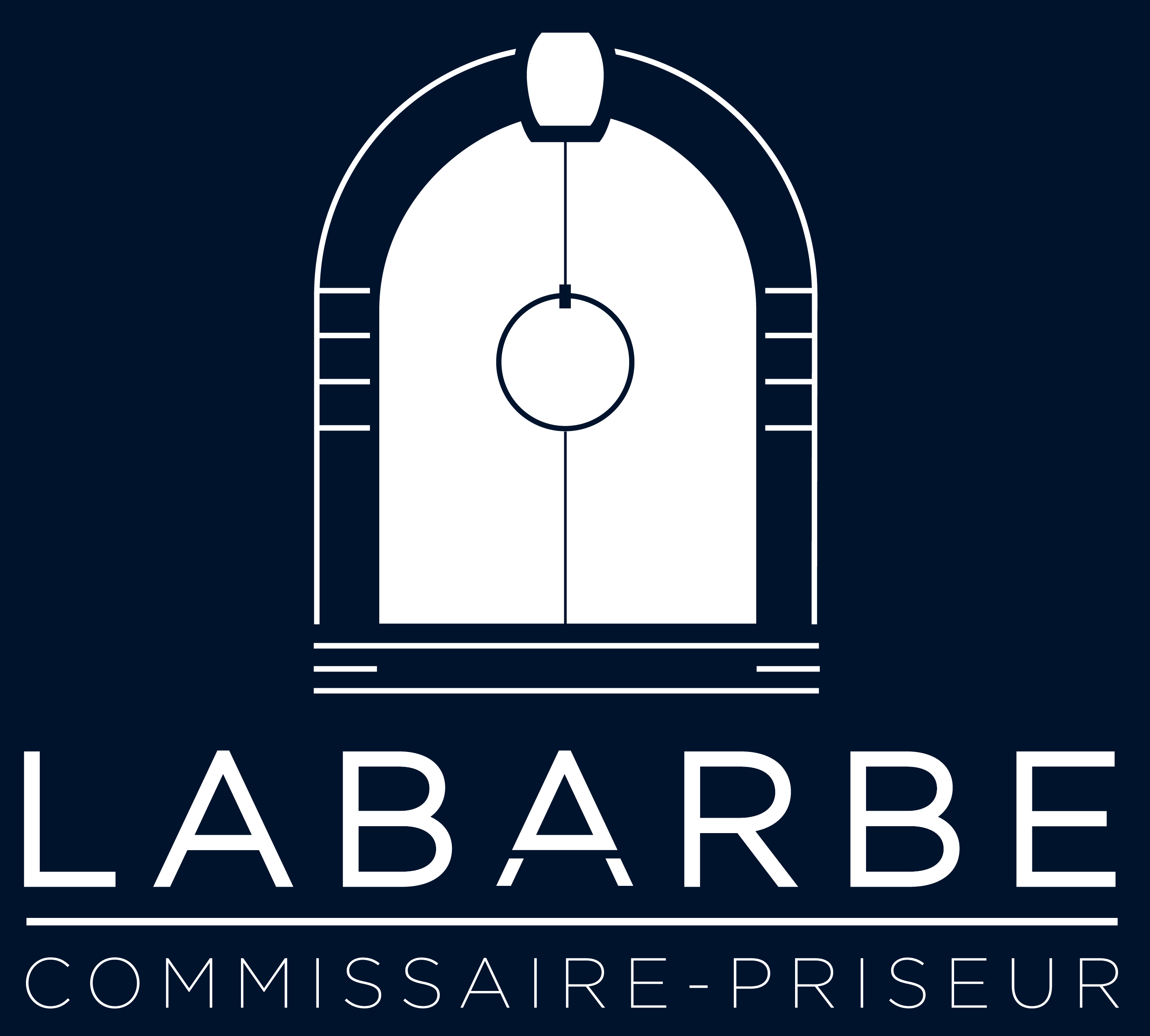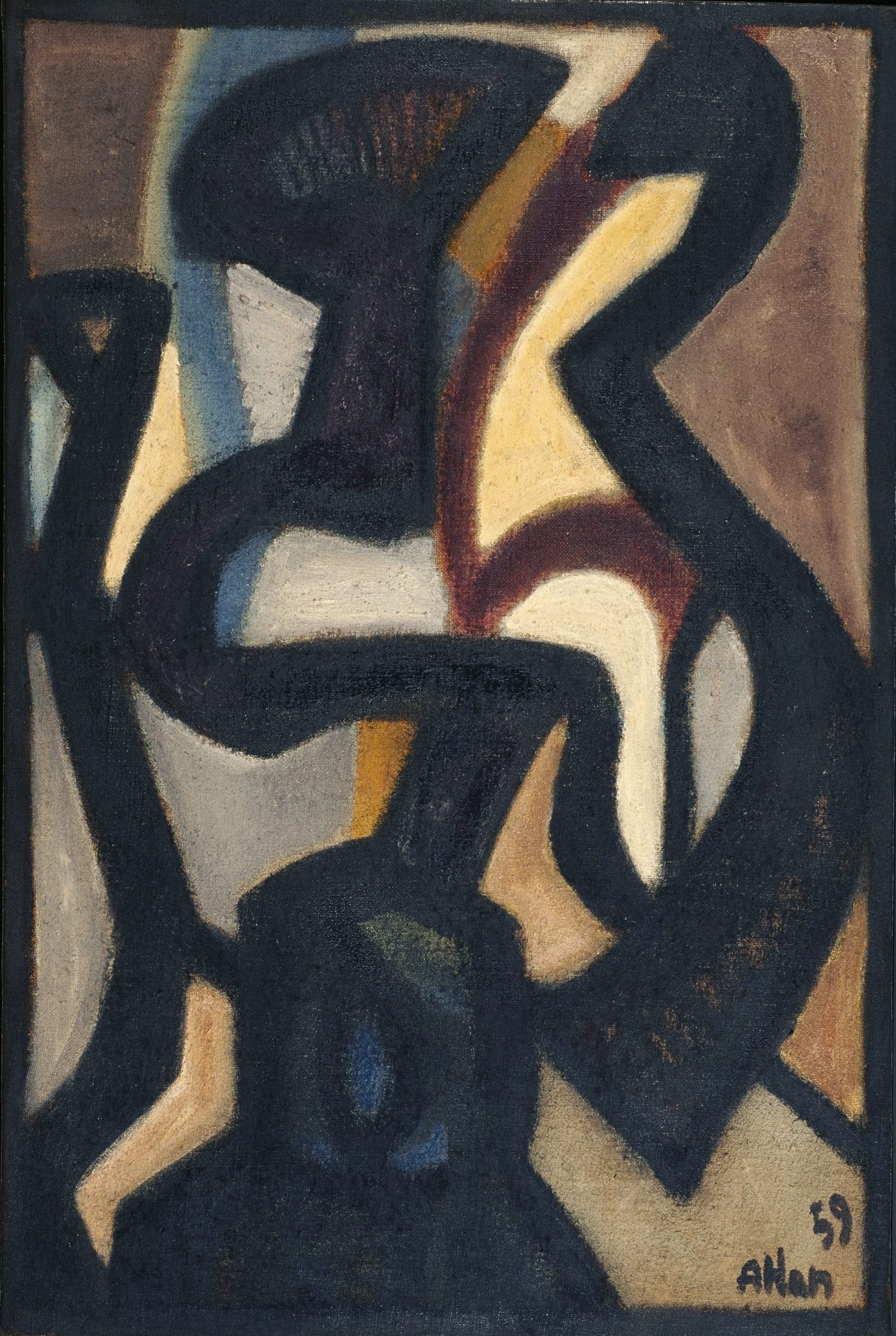Jean Michel ATLAN (1913 - 1960).
Salambô III.
Oil on canvas, signed and dated 1959 lower right.
100 x 65 cm.
Listed in the catalog raisonné of Jacques Polieri and Anneth White under number 813 page 371.
The auctioneer conducts the auction.
There are two auction types :
A sale can be described as an auction when anybody is free to participate, under the sole condition of his solvency.
Everybody is able to hear all the offers made, and can thus outbid. The object presented is won by the highest bidder.
Any bid has to be equal to or higher than the starting price, or must be higher than the one proposed by a competitor for the purchase of the thing.
The amount of every bid is repeated out loud by the auctioneer so that every bidder can hear it.
This way, auctions are an objective and automatic mode of designation of a price and a purchaser.
The purchase order corresponds to a specific maximum amount in euros up to which the auctioneer is mandated to buy the item. The auctioneer buys the item on behalf of his client, in accordance with the instructions of the purchase order form. The auctioneer aims to purchase the item at the lowest possible price and still under the maximum price his client has set.
The auctions being "public", they are open to anyone who can bid, i.e to any creditworthy person.
The place where the sale takes place is public. The auctioneer ensures the free access to the sale.
The restrictions to participate in an auction are those of common law : non-emancipated minors, protected adults, people under the influence of alcohol.
The auctioneer may subject the participation to a prior registration and the presentation of a guarantee of payment, these conditions being objective, non-discriminatory and appropriate.
The price is shouted. The sale is conducted in French and bids are made in euros. The auctioneer conducts the operations. He designates the item for sale and announces a starting price. People start bidding. When it turns out that no one is willing to offer a higher price, the item is won. The lot is sold and the sale is over when the auctioneer blows the hammer and says 'Adjugé'.
It is possible to bid by raising your hand, the sign being immediately translated into figures by the auctioneer, who announces it orally.
If you can't attend the saleit is possible to place an absentee bid. You have to fill in a purchase order form with the highest amount you are willing to pay for the artwork..
Once your form is registered, you will receive a confirmation by email.
If you can't attend the saleit is possible to place an absentee bid. You have to fill in a purchase order form with the highest amount you are willing to pay for the artwork..
Once your purchase order is registered, you will have the confirmation by email. You may be required to provide a piece of identification for the buyer as well as his bank details.
For some objects of exceptional character and/or value, a guarantee deposit may be required.
If the purchase order is made on behalf of a legal entity such as a company, you may be required to provide a Kbis extract and the ID of the manager mentioned in this document.
If the auctioneer receives several orders for identical amounts on the same lot and if, at the auction, these orders represent the highest bids, it will be awarded to the bidder whose order has been received first. .
No purchase order lower than the low estimate is accepted.
Full contact details must be provided in the form.
If the purchase order has been completed, the bill of sale summarizing the designation of the objects purchased, the amount awarded and the total amount with the fees will be sent no later than 24 hours after the sale (excluding non-working days).
The sending is done to the email filled during the request or, in the absence of it, by postal way.
it is possible to place bids by telephone.
Bidding by telephone lets you take part in the auction without having to be present in the auction room. If you would like to do this you will need to book yourself in as a telephone bidder in advance. Places are available on a first-come-first-served basis. You will also need to fill in a telephone bid form, providing proof of identity and residence and a contact telephone. is the one by which the person asks to be called on the phone during the auction, to make a live auction. To do this, simply fill in a Telephone bid form.
Once your request is registered, you will have the confirmation by email or telephone. You may be required to provide an ID as well as bank details.
For some objects of exceptional character and/or value, a guarantee deposit may be required.
If the purchase order is made on behalf of a legal entity such as a company, you may be required to provide a Kbis extract and the ID of the manager mentioned in this document.
Please note that this is a free service provided by the Auction House that can not be held responsible in case of late request or defective telephone link or in case of any error made in telephone contact.
No telephone bid form for objects whose low estimate is lower than 200 euros is accepted.
If you want to bid on the internet, the Auction House Labarbe uses the platform Interencheres Live. Live sales are broadcast on https://www.interencheres-live.com/. They bring two new services:
If you want to participate in an auction live or deposit a secret purchase order, kindly note that you have to register BEFORE the sale on interencheres-live.com.
Taxes are alway included in the hammer price, but the selling fees are not. Selling fees are a percentage calculated on the total amount of the sales bill. They can cary from one sale to another.
If you bid on the internet, an additional 3-percent fee applies. It pays the subcontractor responsible for organizing the auction live.
The payment of any item is due immediately. spot.
You can pay cashcash in the limit of €1000 with fees for French citizens and up to €15,000 with fees for anybody whose tax domicile is abroad.
The payment can also be made by credit card when the place of the sale allows it. 4% additional fees are charged to purchasers holding foreign cards.
If you bids were placed remotely, payment must be made upon receipt of the sales slip.
You can pay by making an appointment with our accounting department, or use a bank transfer. Please contact us to retrieve our bank details.
For purchases made via the platform interencheres-live.com, the total amount can be debited from the credit card you've used for the registration.
You should first find out where your good is stored by contacting us beforehand.
Unless otherwise specified, the property is sent in good condition. The auction house is not liable for any loss or damage. The cost of the transport is the responsability of the purchaser.

